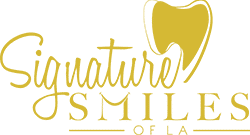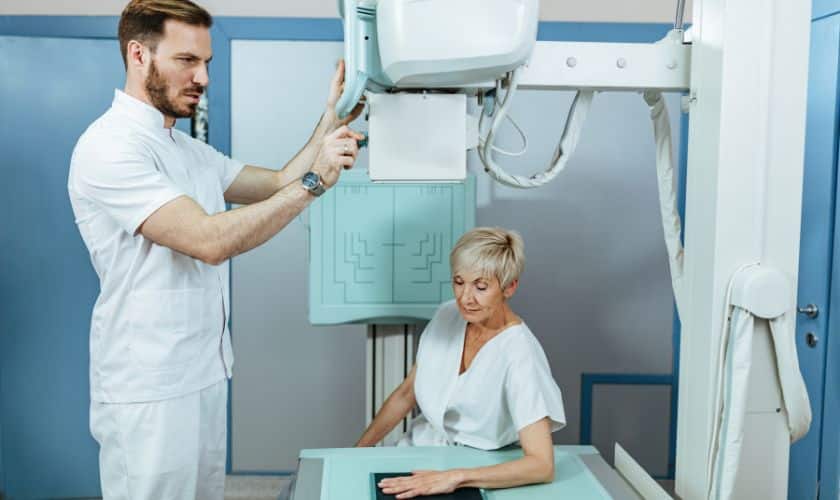Are you aware that oral cancer is on the rise? Shockingly, it is. In fact, recent studies have shown a significant increase in cases of oral cancer around the world. This alarming trend has made oral cancer screening even more crucial than ever before. If you are someone who values their health and well-being (which we know you do), then read on to discover why getting regular oral cancer screenings should be at the top of your priority list!
According to the Oral Cancer Foundation, every hour, one person dies from oral cancer in the United States. The death rate for oral cancer is higher than that of cancers we are more familiar with, such as cervical cancer, Hodgkin’s lymphoma, laryngeal cancer, and skin cancer. Despite this, research shows that only 57% of Americans are aware of the deadly disease.
Oral cancer can occur in any part of the mouth, including the lips, gums, tongue, cheek lining, and hard or soft palate. It can also spread to other parts of the body, such as the lymph nodes and lungs. Early detection is key to increasing survival rates – when caught early, patients have an 80-90% chance of surviving oral cancer. Unfortunately, however, only about 50% of cases are caught in the early stages.
There are several risk factors associated with oral cancer. These include smoking tobacco products (cigarettes, cigars, pipes), excessive alcohol consumption, betel nut use, human papillomavirus (HPV) infection, and a history of head and neck radiation therapy. People with any of these risk factors should be extra vigilant about getting regular oral cancer screenings from their dentist or doctor.
What is Oral Cancer Screening?
Oral cancer screening is the process of looking for signs of cancer in the mouth. This can be done by a dentist or other health care provider. Oral cancer screening is important because it can help find cancer early when it is most treatable.
There are two types of oral cancer screening: (a) visual and (b) physical. While visual screening involves looking at the mouth for anything that looks abnormal, physical screening involves feeling the mouth for anything that feels abnormal.
Some risk factors for oral cancer include smoking, heavy alcohol use, and exposure to sunlight. If you have any of these risk factors, it is important to get screened regularly for oral cancer.
Source – Cleveland Clinic
The Importance Of Oral Cancer Screening
The earlier oral cancer is caught, the better. According to the Oral Cancer Foundation, the 5-year relative survival rate for those whose cancer is caught early is 83%. This drops dramatically to only 53% when cancer has spread to other parts of the body. Early detection is key to successful treatment, so it’s essential to get regular screenings. Here are 10 reasons why oral cancer screenings are important:
1. Oral cancer is one of the most common cancers in the world.
2. Early detection is key to successful treatment.
3. Oral cancer can be difficult to detect in its early stages.
4. Symptoms of oral cancer can be easily mistaken for other conditions.
5. Oral cancer is often asymptomatic in its early stages.
6. Oral cancer screenings are quick and painless.
7. They can be performed by your dentist or doctor during a routine appointment.
8. Oral cancer screenings can help catch the disease before it spreads to other parts of the body.
9. Treatment for oral cancer is more successful when the disease is caught early.
10 . Regular oral cancer screenings could save your life.
Signs And Symptoms Of Oral Cancer
The most common signs and symptoms of oral cancer include the following:
-A sore or irritation in the mouth that doesn’t go away
-A lump or thickening in the cheek
-A white or red patch on the gums, tongue, or lining of the mouth
-A sore throat that doesn’t go away
-Difficulty swallowing
-Weight loss
Risk Factors Of Oral Cancer
There are many risk factors for oral cancer, and some of them may surprise you. Here are a few of the most common:
1. Tobacco use: Cigarettes, cigars, and pipe smoking are all major risk factors for oral cancer. Tobacco contains over 60 known carcinogens, and the risk of developing oral cancer increases with the amount of tobacco used.
2. Alcohol use: Heavy alcohol use is another major risk factor for oral cancer. Alcohol can damage the cells in the mouth, which makes them more susceptible to cancer-causing agents.
3. UV exposure: Prolonged exposure to UV radiation from the sun or tanning beds can increase your risk of developing oral cancer. The UV rays can damage the DNA in your cells, making them more likely to become cancerous.
4. Poor nutrition: A diet that is low in fruits and vegetables and high in processed foods can increase your risk of developing oral cancer. Fruits and vegetables contain antioxidants that help protect your cells from damage. Processed foods often contain chemicals that can damage your cells and make them more susceptible to cancer.
How To Reduce Your Risk Of Oral Cancer
Most people are aware of the risks associated with smoking cigarettes, but few know that using tobacco products of any kind can increase their risk of developing oral cancer. In fact, tobacco use is the leading cause of oral cancer. Other risk factors include excessive alcohol use, ultraviolet (UV) radiation exposure, and a family history of cancer.
Fortunately, here are some things you can do to reduce your risk of developing oral cancer:
- If you currently smoke cigarettes or use other tobacco products, quitting is the best thing you can do for your health.
- If you don’t smoke, don’t start.
- Limiting your alcohol intake can also help reduce your risk.
- And be sure to protect your lips and mouth when spending time in the sun by wearing a lip balm with SPF 15 or higher and avoiding prolonged UV exposure.
If you’re concerned about your risk of developing oral cancer, talk to your dentist or doctor. They can help you assess your individual risks and recommend steps you can take to reduce those risks. By following these steps, you can help reduce your risk of developing oral cancer and enjoy a healthier, happier life.
Conclusion
Oral cancer screening is more important now than ever before. With the increasing prevalence of oral cancer and other diseases, it is essential to get screened regularly. By educating yourself on the signs and symptoms and understanding your risk factors, you can make an informed decision about getting tested for oral cancer. Regular screenings are key in the early detection and successful treatment of this potentially deadly disease.


